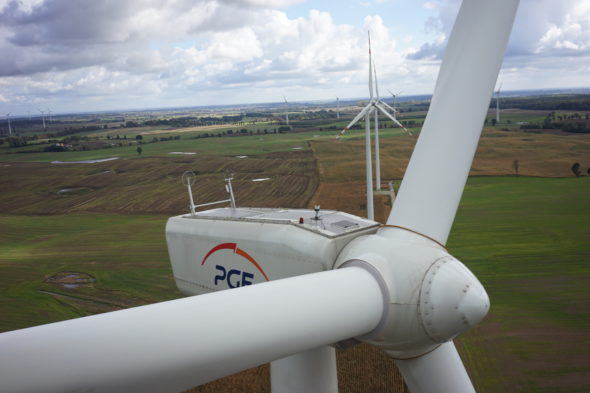In the near future, the rise in energy prices caused by the Russia-Ukraine war will become another driver behind the green transition. European countries, including Poland, will be forced to diversify and increase their own low-carbon sources in order to cut off the bloody supplies from the east as soon as possible. However, for these power sources to develop efficiently stable legislation is necessary, but it’s nowhere to be found in Poland – writes Aleksander Tretyn, editor at BiznesAlert.pl.
Stable legislation will accelerate the growth of renewables
One of the elements of the accelerated diversification of energy resources will be the dynamic development of domestic renewable energy sources. Increasing our own low-carbon sources will allow us to move away from high-carbon fuels such as coal, oil and gas more quickly.
We need a stable legal environment for the efficient development of renewable energy sources. Unfortunately, the dynamic pace of legal changes in Poland is not conducive to new investments in RES.
Onshore wind farms, one of the most efficient RES generation technologies, were effectively blocked in Poland in 2016. After the introduction of the Distance Act, more than 90 percent of the locations were excluded from the possibility of investment. Until mid-2021, onshore wind farms were the dominant source of renewable energy in Poland. However, this trend changed at the end of 2021, when wind was replaced with solar power plants.
Since mid 2021, the Sejm has been talking about the need to abolish the 10h rule, which blocks the development of new onshore wind investments. However, apart from discussions, little is happening. In May last year, a draft amendment was submitted, but to date no specific steps have been taken. Every now and then it is rumored that the amendment of the law is already coming into force, but specific information about the actions of the government is nowhere to be found. All new wind projects that are currently being developed are implemented on the basis of old administrative decisions. Their number is already getting smaller, which we saw in the last RES auctions, where the number of solar projects exceeded wind investments.
In order to exploit the full potential of onshore wind farms in Poland and thus accelerate the green transition, the lawmakers should take concrete steps as soon as possible to create a stable and friendly regulatory environment for new investments. Without providing investors with a convenient legislative framework for developing onshore wind farms, a dynamic energy transition and a reduction in the demand for Russian energy resources will be impossible.
Another important point is also to support the development of solar energy, which recently has fallen out of step with the mission of the ruling party. At the end of 2021, the prosumer settlement system was changed from net metering to net billing. The net metering system was very beneficial for prosumers, as in the case of installations up to 10 kV, the prosumer supplied 1 kWh to the network, and took 0.8 kWh from it. In the case of a larger installation, for each kilowatt-hour delivered, the prosumer had the possibility to receive 0.7 kWh. After the changes, new prosumers will be settled on the basis of the purchase and sale of the produced energy, which is a much less favorable solution.
Currently in Poland there are more than 850 thousand prosumers, who are responsible for nearly ¾ of the power installed in PV in Poland. This large number has been made possible mostly thanks to the „Mój Prąd” program implemented by the government, which propelled the growth of home PV installations.
The settlement system had to be changed due to an EU directive. However, the introduction of solutions for the sale and purchase of electricity could still have been delayed, or at least a slightly longer transition period could have been applied.
In addition, the Sejm is working on another project, which aims to slow down the development of photovoltaic farms. The new bill will limit the construction of PV installations by making their development dependent on the existing spatial development plan for installations above 1 MW. The draft law provides that farms with a capacity of up to 1 MW can be built on agricultural wasteland of classes V, VI and VIz, but excludes the possibility of locating such objects on class IV land, which is a significant part of the area for potential new investments. The introduction of these regulations can be compared to the 10h rule, which also restricted the development of onshore wind farms.
The actions taken by the lawmakers in the field of solar energy are another example of the unstable legal environment for RES investments. The national legislator is effectively pulling the brake on each RES investment. Early on wind turbines were axed, even though they could have had a significant impact on becoming independent from coal and gas. Currently, solar installations, which have also developed dynamically in recent years, are becoming a nuisance.
If we want to move towards independence from foreign energy resources as soon as possible, we should ensure a stable legal environment that will encourage the development of new investments in RES. As long as the everlasting legal changes continue and the RES Act is updated every two or three months, our energy transition will never gain momentum, which is necessary to rid ourselves of the dependence on fossil fuels.









